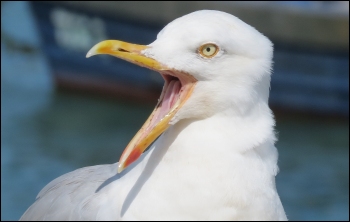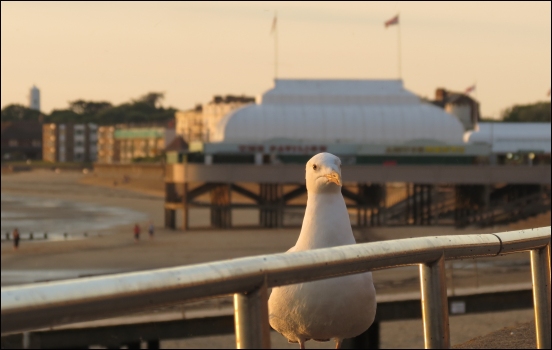Town councillors in Burnham-On-Sea have voted against spending thousands of pounds of tax payers money on trying to reduce the number of seagulls in the town.
Members of the Town Projects Committee discussed the proposals at their latest meeting after receiving complaints from residents about noisy nesting gulls.
Cllr Paul Young, Chairman of the committee, explained that the issue had been raised by a Burnham resident following an initiative in Devizes in Wiltshire to tackle the seagull problem there where the Council removes eggs from nests at an annual cost to taxpayers of around £10,000.
Burnham’s Town Council Clerk Denise Emery said that although seagull numbers had risen locally, they had probably reached a plateau due to the availability of food and a lack of new nesting sites. She thought that without regular effort over several years any initiative to reduce seagull numbers would not have the desired effect.
Cllr Peter Burridge-Clayton told the meeting: “I’m not particularly keen on looking further into this unless everyone does it along the coastline. I don’t see there is going to be much point if they are not doing it in Weston – the seagulls will just come from there. I’m all for very strong bin bags and education and that sort of thing, but I don’t think it’s for this council to actually start pumping lots of money into this and doing away with seagulls given that it’s a seaside town. I like seagulls.”
 The Town Clerk followed up on this by reminding members that “we have holidaymakers who like to feed the seagulls, and who see this as a part of their holiday.”
The Town Clerk followed up on this by reminding members that “we have holidaymakers who like to feed the seagulls, and who see this as a part of their holiday.”
Cllr Nick Tolley agreed with Cllr Burridge-Clayton that “we are in a different situation to other seaside towns and Bristol, as our gulls are spread across the two towns and are not nesting in just one place.”
“Unless they are going to be sending the SAS up with machine guns and hawks, I don’t think we would ever be able to clear the problem totally,” he quipped.
“We would have to spend thousands of pounds on an initial survey to site these things to start with, and probably employ marine ornithologists and all sorts. I think that the outlay would be a crime compared to the benefits of removing them.”
Local resident Ann Popham, who was among the public attending the meeting, said that a friend had replaced gulls eggs with china eggs, and the female had sat there for long time but in the end flown off and didn’t return to nest at that site. The Clerk thought that this solution wouldn’t work as it required vast numbers of residents to come forward to do this on their properties.
Local resident Phoebe Pearce added “the problem with seagulls is that their breeding life is 30 to 35 years. If you allow a seagull on your roof and it breeds once it will return every year, and so will its young. We have employed pest control and they go up there and deal with it and we don’t have gulls nesting on our roof anymore. Our problem is the people on The Esplanade sit in their cars, they buy for themselves and the seagulls. Is it not true that it is illegal to feed the seagulls on the Esplanade?”
The Clerk clarified that there is not a by-law on the Esplanade that enables Sedgemoor to fine people for feeding the gulls, but Mrs Pearce thought that the Council should pursue this option.
Cllr Tolley said he doesn’t want to “see the council invest too much time or money into this project” and that any efforts should “focus on educating the tourists and changing the bin collection practices around black bags and putting them out too early.”
Councillors decided they are not in favour of a long-term plan to address the issue, but they instead want to look at a solution in conjunction with Sedgemoor District Council around stopping the feeding of gulls. The decision is subject to a final vote at the September full Town Council meeting.







